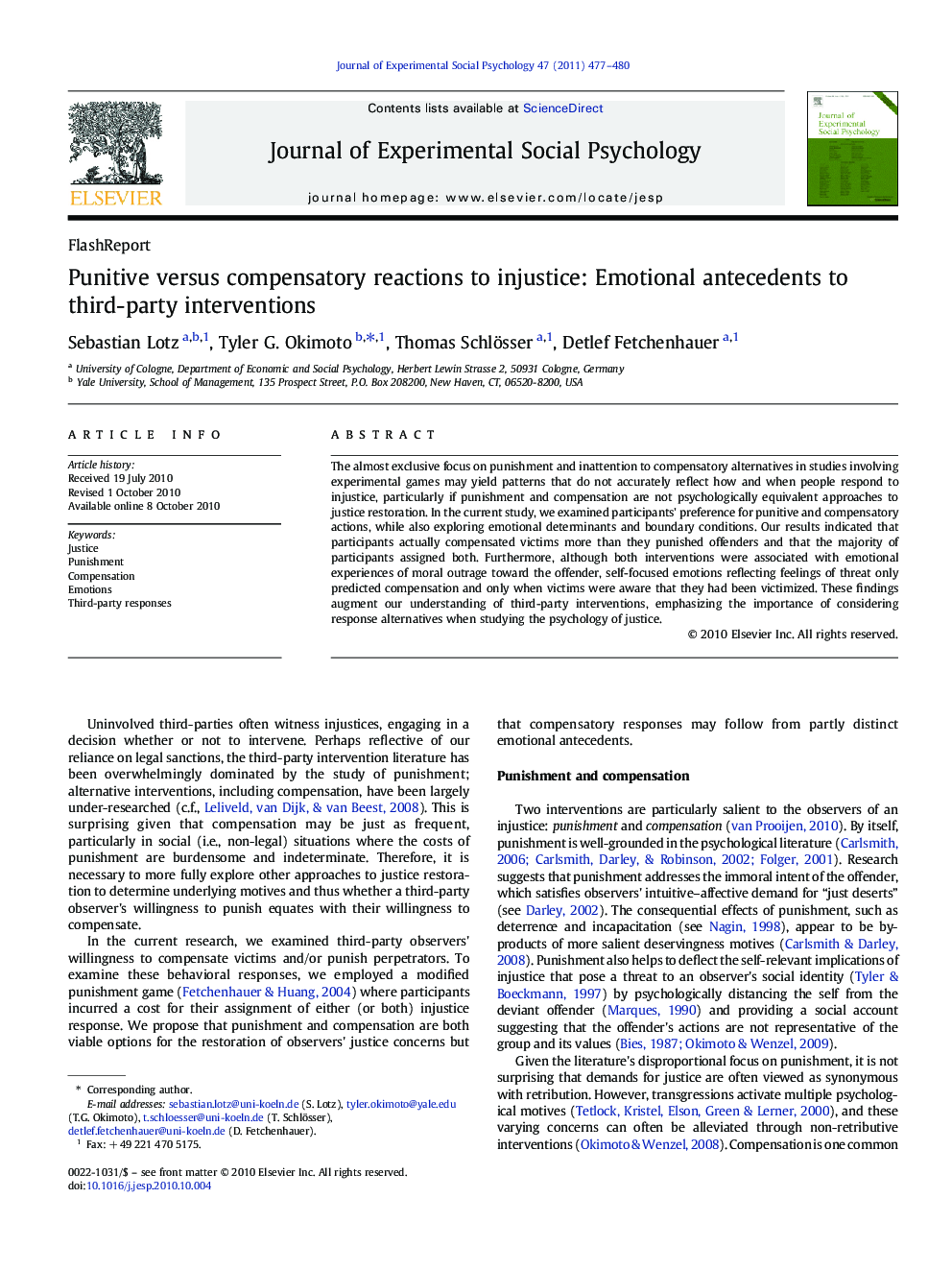| Article ID | Journal | Published Year | Pages | File Type |
|---|---|---|---|---|
| 10468671 | Journal of Experimental Social Psychology | 2011 | 4 Pages |
Abstract
The almost exclusive focus on punishment and inattention to compensatory alternatives in studies involving experimental games may yield patterns that do not accurately reflect how and when people respond to injustice, particularly if punishment and compensation are not psychologically equivalent approaches to justice restoration. In the current study, we examined participants' preference for punitive and compensatory actions, while also exploring emotional determinants and boundary conditions. Our results indicated that participants actually compensated victims more than they punished offenders and that the majority of participants assigned both. Furthermore, although both interventions were associated with emotional experiences of moral outrage toward the offender, self-focused emotions reflecting feelings of threat only predicted compensation and only when victims were aware that they had been victimized. These findings augment our understanding of third-party interventions, emphasizing the importance of considering response alternatives when studying the psychology of justice.
Related Topics
Life Sciences
Neuroscience
Behavioral Neuroscience
Authors
Sebastian Lotz, Tyler G. Okimoto, Thomas Schlösser, Detlef Fetchenhauer,
